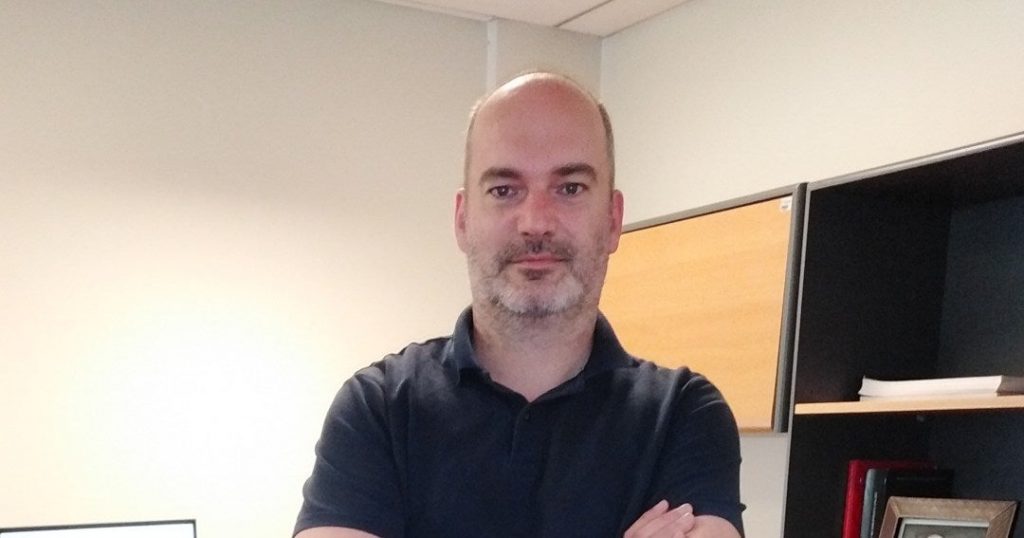“Why is economic theory such a difficult discipline?” The Nobel Prize winner in economics Paul Krugman questioned Selling Boom, a book published in the mid-1990s. His answer: Partially, because it can’t be controlled. Experiments and because they deal with humans, they do not act in a simple and automatic way.
But could the latest work of Nobel Prize-winning economists (focusing on controlled and natural experiments) create a kind of revolution in the social sciences and help improve public policy?
Ryan Cooper, the Chilean economist who was a former student of Joshua Ingreste, who won the Nobel Prize in Economics this year, thinks so, and in this interview with L.R. he explains why.

How applicable is the research of the most recent Nobel Prize winners in economics to our countries?
Most of the research by 2019 and 2021 Nobel Prize winners in Economics and other colleagues is highly applicable to the realities of Latin America, and in particular to Colombia because learning is linked to general concepts and theories of economics and its application to public policies, rather than evidence of specific, controlled intervention .
For example, with Card and Krueger’s famous 1994 study of the U.S. minimum wage rather than staying with the exact size that was measured to influence employment to increase the minimum wage in Pennsylvania, what’s really important to keep is that it’s not clear that Raising the minimum wage will always lead to an increase in unemployment.
This learning, in addition to its very strong consequences for the implementation of wage policies in general, has an impact on different countries because the mechanisms that explain the phenomenon acquired (in this case the existence of purchasing monopolies) do not differ from one country to another.
This has been proven by studies by other researchers who obtained the same results in different countries and contexts. An article by Nelson et al. 2013, for example, studies the effect of neonatal treatment in low-birth-weight neonates on the human capital of these people a decade later, and found exactly the same result (a positive and statistically significant effect) in Chile and Norway.
Why do you think we are facing a revolution that will help improve public policies and social innovation?
Public policies are based on ideas, intuitions, ideologies and available resources, among other components, But they are not fed scientific evidence. Current public policies are similar to medieval medicine.
However, thanks to the beginning of the use of natural and controlled experiments in the social sciences, we are gradually beginning to generate scientific evidence that can help make budget and political technology decisions, and that will allow for better and more efficient policies than ever before.
Just as experiments revolutionized medicine, allowing the quality of billions of people to be improved, the same is beginning to happen in economics and the social sciences. It is a revolution because of the boom that experimentation is starting to bring about today and because of the projection that we can do to improve the welfare of mankind in what comes next.
What is your position on issues such as minimum wages or subsidies, in light of your research and Nobel Prize winning work in economics?
My feeling is that we are just getting started. If there is one thing we currently know, it is that there is a lot to learn and that there is no clear cure or magic formula, such as saying that if you set a minimum wage, you will be unemployed. Studies such as Card and Krueger 1994 have shown that it is not always clear that this statement is true.
Is it unfair to say that economists live in an ivory tower, far from reality?
It’s not fair to classify economists like these as Nobel Prize winners in 2019 and 2021, exactly what they’re doing is trying to get close to the problems afflicting people. Today more than ever before, there are economists and scientists from other disciplines who devote more energy and resources to finding solutions to the needs of millions of people every day.
What should economists do to contribute to better public policies?
We have to be humble, and listen more to people to better understand how to convey ideas. You also need to work with experts from other disciplines. In particular, we must partner with journalists who help us translate information from a technical language into a common language, facilitating learning for all and especially as it effectively fuels the decisions of politicians around the world in order to improve the lives of many people.

“Social media evangelist. Student. Reader. Troublemaker. Typical introvert.”

:quality(85)/cloudfront-us-east-1.images.arcpublishing.com/infobae/TEQF6EONZRFGLLLDIDD4L2O4EE.jpg)

:quality(75)/cloudfront-us-east-1.images.arcpublishing.com/elcomercio/XU32LRAEZFDDPNVHLFU3CKVBYY.jpg)



More Stories
Venezuela ranks fourth in female leadership in science and technology in Latin America
In Portuguesa and Sucre they explore the wonderful world of science
The university court overturns the expulsion of two teachers and a chemical sciences student